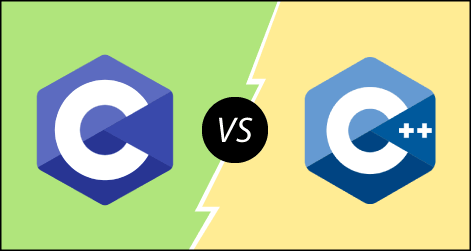What Is C?
C is a structured or procedural programming language that is machine-independent and widely used in various applications.
C is a fundamental programming language that can be used to develop applications ranging from operating systems (like Windows) to complex programs (like Oracle databases, Git, Python interpreters, etc.). The C programming language is often referred to as the ‘God’s programming language’ because it lays the foundation for other programming languages. If we understand C, we can easily learn other programming languages. The C language was developed by the great computer scientist Dennis Ritchie at Bell Labs. It includes some additional features that make it unique compared to other programming languages.
What Is C++?
C++ is a specialized programming language developed by Bjarne Stroustrup around 1980 at Bell Labs. The C++ language is very similar to the C language and is highly compatible with it, allowing 99% of C programs to run without any source code changes. Although C++ is an object-oriented programming language, it is safer and more structured than C.
Let’s understand the differences between C and C++.

👇 Click to Claim 👇
👉 C Language Knowledge Resource Collection
The Following Are the Differences Between C and C++:
Definition
C is a structured programming language that does not support the concepts of classes and objects, whereas C++ is an object-oriented programming language that supports classes and objects.
Type of Programming Language
C supports structured programming where the code is checked line by line, while C++ is an object-oriented programming language that supports the concepts of classes and objects.
Development of the Language
The C language was developed by Dennis Ritchie at Bell Labs, while the C++ language was developed by Bjarne Stroustrup at Bell Labs around 1980.
Subset
C++ is a superset of the C programming language. C++ can run 99% of C code, but C cannot run C++ code.
Type of Programming Method
C uses a top-down approach, while C++ uses a bottom-up approach. The top-down approach breaks down the main module into tasks, which are further broken down into subtasks, and so on. The bottom-up approach first develops lower-level modules and then the next level of modules.
Safety
In C, data can easily be manipulated by external entities because it does not support encapsulation and information hiding, while C++ is a much safer language where no external entities can manipulate its data because it supports encapsulation and data hiding. In C, functions and data are free entities, while in C++, all functions and data are encapsulated in the form of objects.
Function Overloading
Function overloading is a feature that allows you to have multiple functions with the same name but different parameters. C does not support function overloading, while C++ supports function overloading.
Function Overriding
Function overriding is a feature that provides a specific implementation for a function defined in a base class. C does not support function overriding, while C++ supports function overriding.
Reference Variables
C does not support reference variables, while C++ supports reference variables.
Keywords
C contains 32 keywords, while C++ supports 52 keywords.
Namespace Feature
A namespace is a feature that groups classes, objects, and functions under a specific name. C does not include the namespace feature, while C++ supports the namespace feature to avoid naming conflicts.
Exception Handling
C does not directly support exception handling; it requires functions that support exception handling. C++ directly supports exception handling by using try-catch blocks.
Input/Output Functions
In C, the scanf and printf functions are used for input and output operations, while in C++, cin and cout are used for input and output operations.
Memory Allocation and Deallocation
C supports the calloc() and malloc() functions for memory allocation, as well as the free() function for memory deallocation. C++ supports the new operator for memory allocation and the delete operator for memory deallocation.
Inheritance
Inheritance is a feature that allows subclasses to reuse properties from parent classes. C does not support inheritance, while C++ supports inheritance.
Header Files
C programs use the <stdio.h> header file, while C++ programs use the <iostream.h> header file.
Summary Table of Differences Between C and C++:
| No. | C | C++ |
|---|---|---|
| 1 | C follows a procedural programming style. | C++ is a multi-paradigm language that supports both procedural and object-oriented programming. |
| 2 | Data in C is relatively unsafe. | In C++, you can use modifiers to make class members inaccessible to external users. |
| 3 | C follows a top-down approach. | C++ follows a bottom-up approach. |
| 4 | C does not support function overloading. | C++ supports function overloading. |
| 5 | In C, you cannot use functions in structures. | In C++, you can use functions in structures. |
| 6 | C does not support reference variables. | C++ supports reference variables. |
| 7 | In C, scanf() and printf() are primarily used for input/output. | C++ primarily uses streams (cin and cout) for input/output operations. |
| 8 | C does not support operator overloading. | C++ supports operator overloading. |
| 9 | C programs are divided into procedures and modules. | C++ programs are divided into functions and classes. |
| 10 | C does not provide the feature of namespaces. | C++ supports the feature of namespaces to avoid naming conflicts. |
| 11 | Exception handling in C is not easy and requires other functions to handle it. | C++ provides exception handling functionality using try and catch blocks. |
| 12 | C does not support inheritance. | C++ supports inheritance. |
I hope this summary table helps you understand the differences between C and C++.

Popular Recommendations
-
C Language Tutorial: Explaining What Programming Language Is in C
-
C Language Tutorial: Explaining Enumerations in C
-
C Language Algorithm: “Finding the First and Last Position of an Element in a Sorted Array” Algorithm Problem